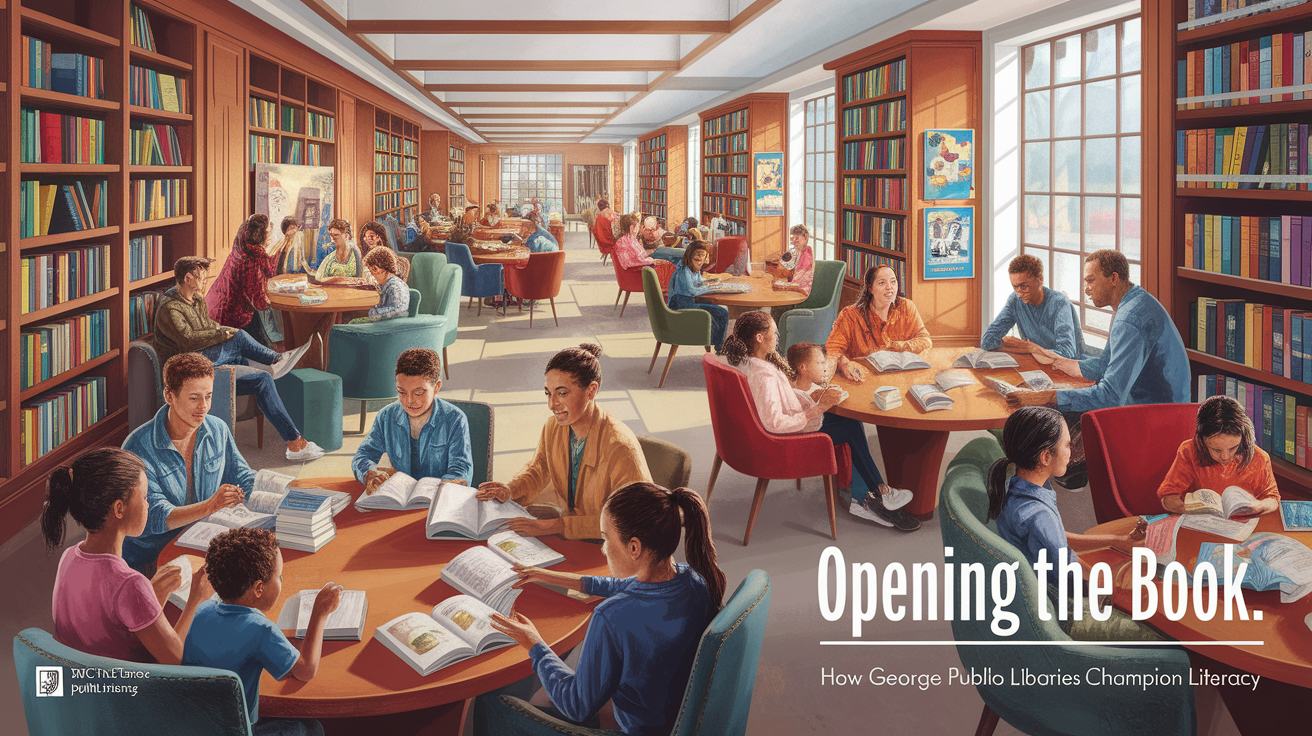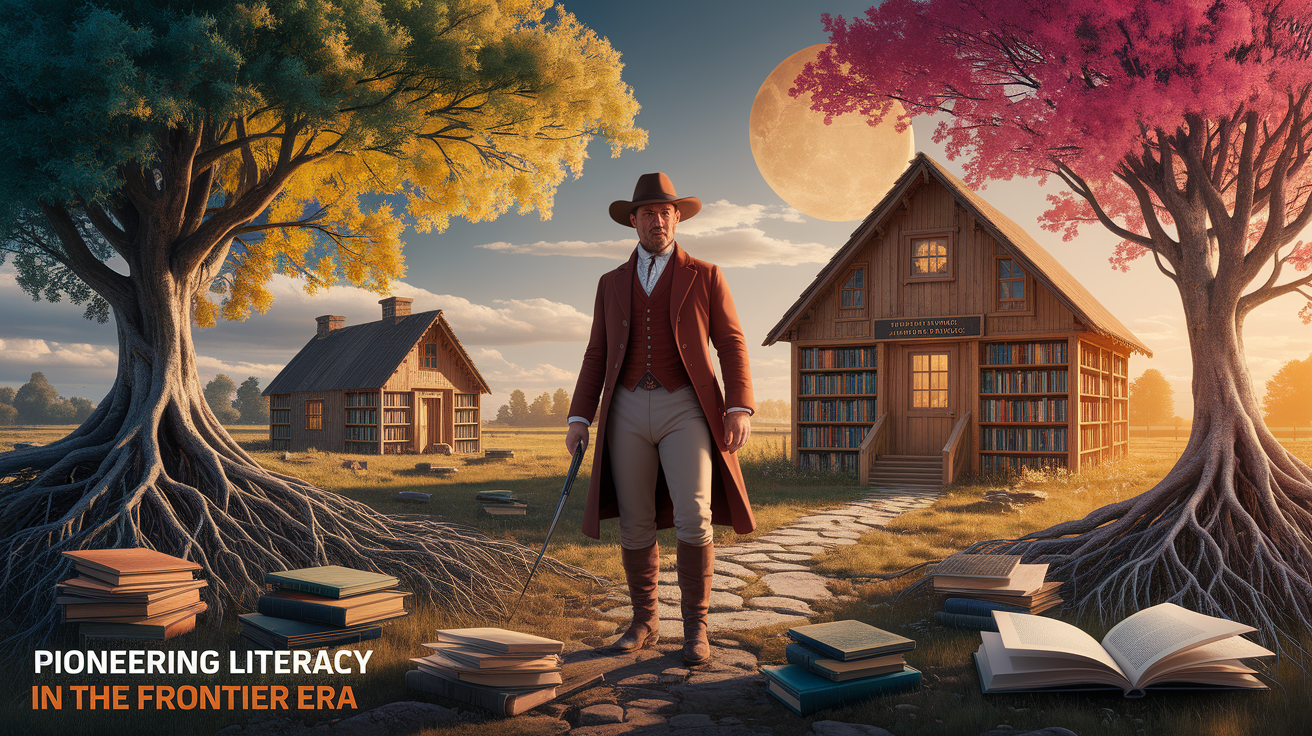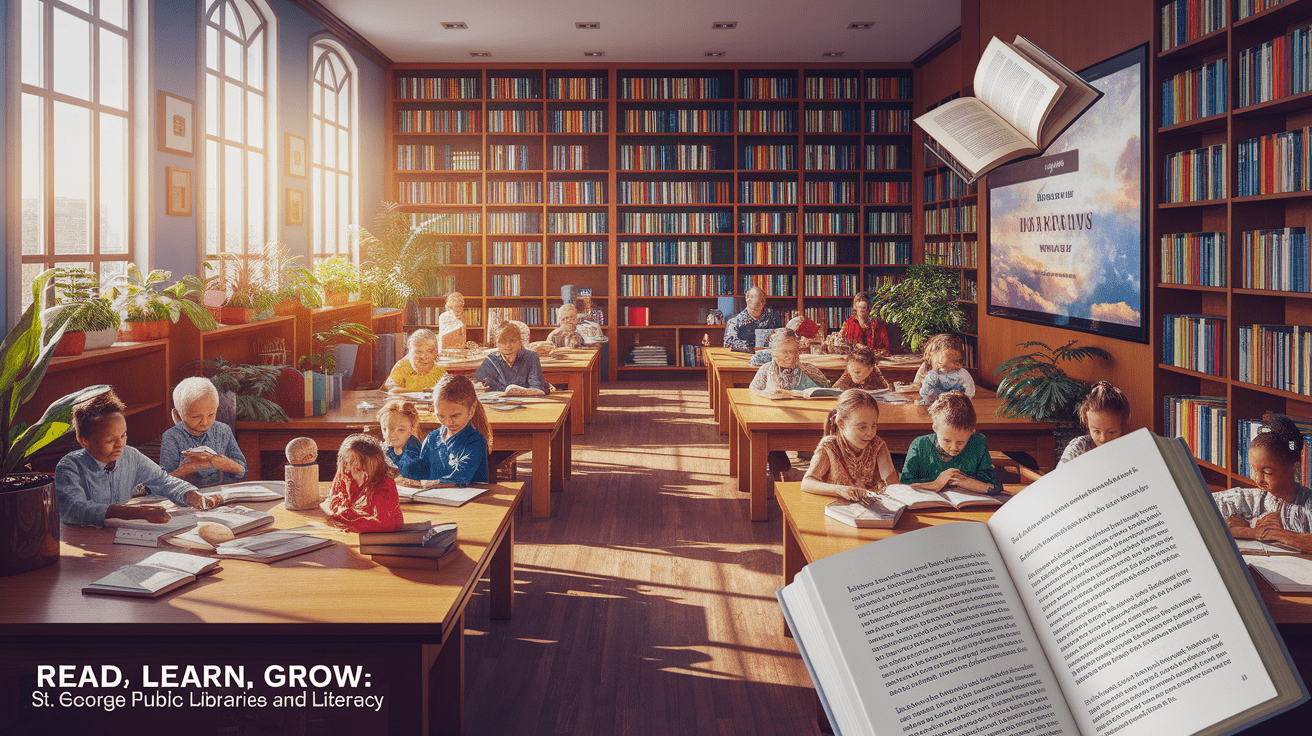Read, Learn, Grow: St. George Public Libraries and Literacy
Opening the Book: How St. George Public Libraries Champion Literacy
In the heart of St. George, our public libraries serve as welcoming spaces where learning and community connect. Whether it’s a child’s first storytime, an adult discovering a new passion through a book club, or a newcomer attending English classes, the Washington County Library System makes literacy accessible to everyone. These aren’t just places to borrow books — they’re vibrant hubs for education, creativity, and personal growth.

Pioneering Literacy in the Frontier Era
The roots of today’s St. George Public Library go back to 1864, when the Utah Territorial Assembly officially incorporated the St. George Library Association. As noted in the library’s own mission and history, pioneers like Orson Pratt, Sr. and Erastus Snow believed deeply in the value of learning. In those rugged early days, residents collected molasses from their farms and sent it to Salt Lake City to be traded for books — a creative and determined way to build a reading collection under frontier conditions.

This early commitment laid the groundwork for a culture that viewed library services as essential to community life, even when resources were scarce.
Growth and Community Engagement in the 20th Century
By 1916, a dedicated library building had taken its place between the St. George Tabernacle and the Woodward School, marking a new chapter in local literacy access. A few years later, in 1919, the facility became part of the Washington County Library, while the city retained the property. As described in the historical overview of libraries in Washington County, separate departments for children were established, showing an early focus on nurturing young readers.
Throughout the 20th century, book collections grew, community reading initiatives emerged, and educational programs expanded to meet the needs of St. George’s evolving population.
Modern Services Fueling Literacy for All Ages
Today, the St. George Public Library branches offer far more than shelves of books. You’ll find services designed for every age and stage of learning:
- Children’s reading programs – From interactive storytelling sessions to reading challenges that spark excitement for books.
- Teen resources – Study spaces, homework help, and creative workshops that encourage exploration.
- Adult education – Including ESL classes, literacy tutoring, and book clubs that build both skills and social connections.
- Digital literacy – Computer labs, technology workshops, and guidance on using library databases and e-books.
Library staff welcome questions, help with research, and guide visitors through the library catalog. Digital resources make it easy to download books, access language learning, or request materials through interlibrary loans.
Partnerships and Impact on Community Literacy
Modern library services in St. George thrive thanks to strong partnerships with schools, cultural organizations, and local literacy initiatives. These collaborations mean more outreach, more events, and more ways for residents to connect with reading and learning opportunities.
The impact is visible — from improved reading comprehension among children, to confident adults gaining new workplace skills through free classes. As the Washington County Library’s mission highlights, fostering lifelong learning is a shared goal between the library system and the community it serves.
Turning the Page: The Future of Literacy in St. George
Looking ahead, St. George’s public libraries are poised to keep evolving. There’s growing interest in expanding digital resources, enhancing early childhood literacy programs, and creating even more accessible learning spaces. The foundation is already strong — built on a history of dedication and resourcefulness, much like those early molasses-for-books exchanges.
Whether you’re a lifelong reader, a parent seeking children’s literacy support, or someone starting an educational journey as an adult, the library doors are open. In St. George, public libraries remain a trusted partner in helping every individual, and the entire community, read, learn, and grow.







